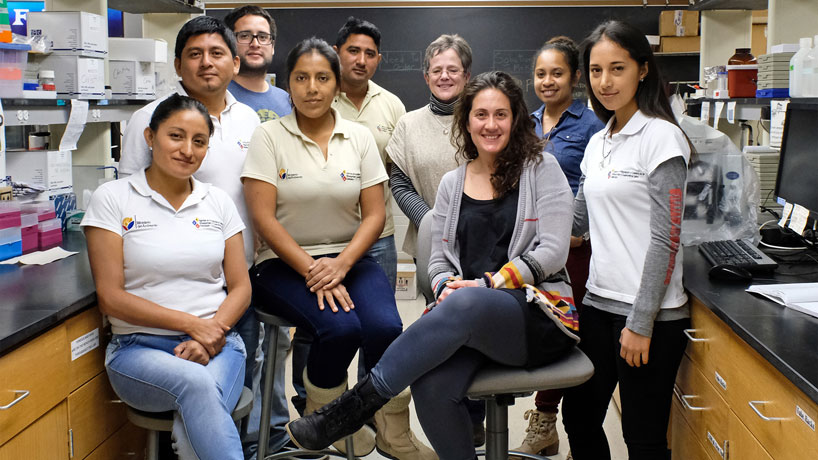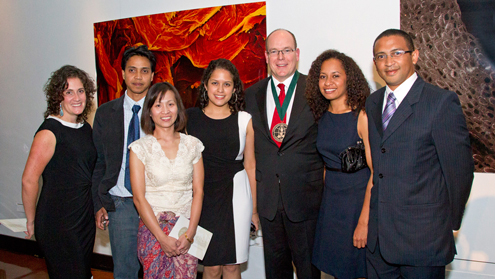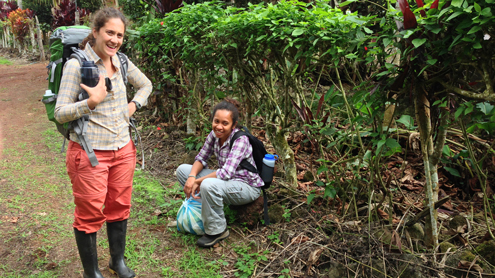After numerous research trips to the Galápagos Islands, UMSL and the Parker lab hosted a partner team of Galápagos lab technicians and veterinarians for the first time.


After numerous research trips to the Galápagos Islands, UMSL and the Parker lab hosted a partner team of Galápagos lab technicians and veterinarians for the first time.
After numerous research trips to the Galápagos Islands, UMSL and the Parker lab hosted a partner team of Galápagos lab technicians and veterinarians for the first time.
After numerous research trips to the Galápagos Islands, UMSL and the Parker lab hosted a partner team of Galápagos lab technicians and veterinarians for the first time.
More than 30 high school students from grades 9-12, representing more than 20 area high schools, attended the weeklong camp.

Do you know where her flies are? Patricia Parker asks her lab assistant over the phone.
Do you know where her flies are? Patricia Parker asks her lab assistant over the phone.
Do you know where her flies are? Patricia Parker asks her lab assistant over the phone.

World Ecology Award recipient Prince Albert II of Monaco poses with UMSL biology PhD candidates (from left) Mari Jaramillo, Heritiana Ranarivelo, Rani Asmarayani, Haydee Hernandez, Samoa Asigau and Fidisoa Rasambainarivo at the Missouri Botanical Garden. The Whitney...
World Ecology Award recipient Prince Albert II of Monaco poses with UMSL biology PhD candidates (from left) Mari Jaramillo, Heritiana Ranarivelo, Rani Asmarayani, Haydee Hernandez, Samoa Asigau and Fidisoa Rasambainarivo at the Missouri Botanical Garden. The Whitney...
World Ecology Award recipient Prince Albert II of Monaco poses with UMSL biology PhD candidates (from left) Mari Jaramillo, Heritiana Ranarivelo, Rani Asmarayani, Haydee Hernandez, Samoa Asigau and Fidisoa Rasambainarivo at the Missouri Botanical Garden. The Whitney...

Two University of Missouri–St. Louis graduate students spent the summer conducting fieldwork in the Galapagos Islands – a kind of mecca for biologists because of the endemic species that have evolved to adapt to the islands’ unique environments.
Two University of Missouri–St. Louis graduate students spent the summer conducting fieldwork in the Galapagos Islands – a kind of mecca for biologists because of the endemic species that have evolved to adapt to the islands’ unique environments.
Two University of Missouri–St. Louis graduate students spent the summer conducting fieldwork in the Galapagos Islands – a kind of mecca for biologists because of the endemic species that have evolved to adapt to the islands’ unique environments.